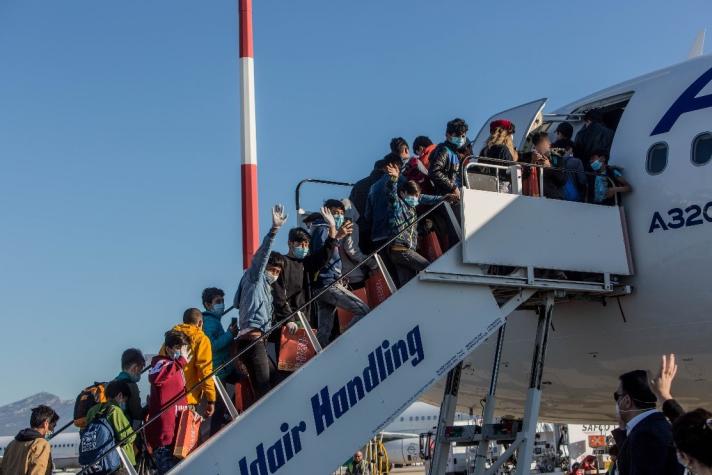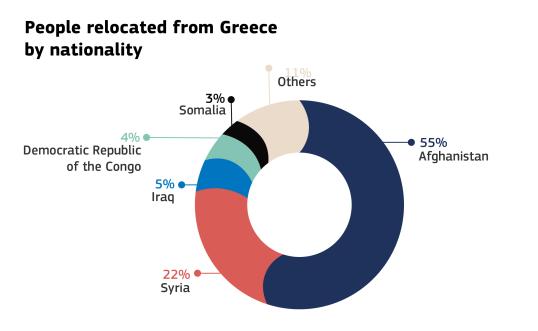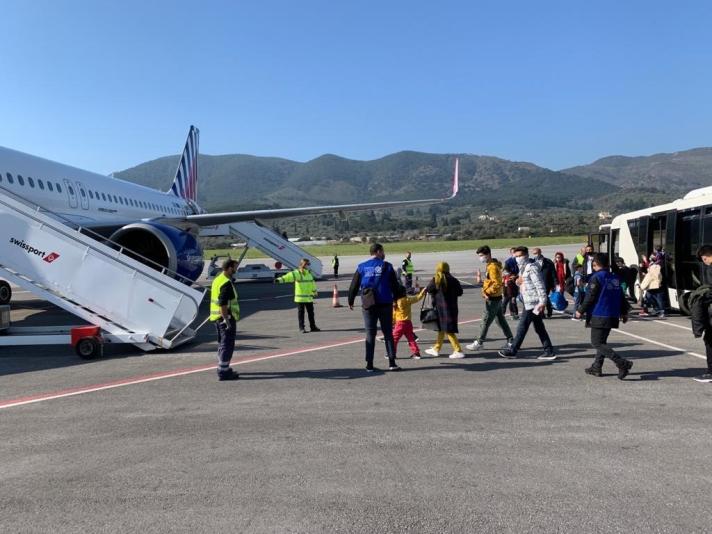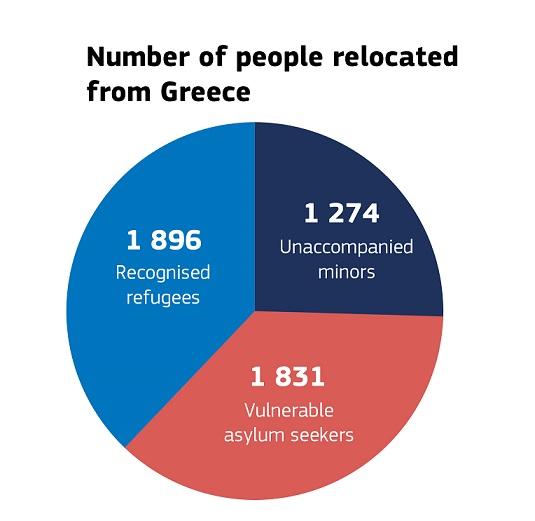
On 11 October, three unaccompanied minors boarded their relocation flight from Greece to Portugal. Their journey marks a unique milestone: 5 001 people, who arrived in Greece since March 2020 up to October 2022, escaping war, prosecution and other devastating circumstances have found new homes across Europe. This was possible through the voluntary relocation scheme.
What is the voluntary relocation scheme?
The relocation scheme puts the European Union’s values and core priorities of migration policy in action, caring for vulnerable people and promoting their well-being. It is intended for people like Jade, a young refugee mother from Cameroon, who fled domestic violence to Greece and relocated to France under the scheme.
“When I was accepted to France, I felt very happy”, said Jade. She plans to become a nurse: “so that I can help others in return”.
In March 2020, to show solidarity with Greece the Commission presented an Action Plan for immediate measures to support Greece. Under the plan the Commission set up a voluntary relocation scheme for asylum seekers and recognised refugees from Greece to other European countries.
Since April 2020, 16 countries (13 EU countries and Switzerland, Norway and Iceland) participate in the relocation scheme from Greece and receive primarily vulnerable asylum seekers and recognised refugees. The scheme is managed by the Greek authorities in cooperation with the EU Agency for Asylum (EUAA) and the International Organisation for Migration.
European Commission support: funding and coordination
The Commission coordinates and facilitates the relocations. The Commission created Standard Operating Procedures for coordination of this voluntary relocation process. It also provides EU funding for the preparation and the accommodation prior to the relocation process in Greece, as well as transfer costs to participating countries and organising partners. For example, €35 million from the 2014-2020 Asylum Migration and Integration Fund (AMIF) was used for relocations.
Source: IOM
At first, the focus was on the relocation of unaccompanied minors in Greece. The EUAA carries out an interview to assess whether relocation is in their best interest. In September 2020, following the fires that destroyed the temporary reception centre in Moria on Lesvos, the scope of the scheme was extended to families of vulnerable asylum seekers and recognised refugees.
Relocations from Greece in numbers
The first relocation flights took place in April 2020 when 12 unaccompanied minors were relocated to Luxembourg and 47 to Germany.
Source: IOM
By 11 October 2022, more than 5 000 persons have been relocated from Greece to other European countries. This includes 1 274 unaccompanied minors, 1 831 vulnerable asylum seekers and 1 896 recognised refugees. This is an important achievement, especially in the context of the COVID-19 pandemic.
EU solidarity
The current voluntary relocation scheme in Greece is a good example of shared responsibility and solidarity towards another European country. The scheme has helped ease pressure on the Greek reception and asylum system. It also decreased the number of asylum seekers and refugees on the Greek islands where many lived under difficult conditions. This allowed the Greek authorities, with the help of the European Commission and the EUAA, to make necessary improvements and reforms to their asylum and migration system
This initiative also exemplifies European solidarity towards the most vulnerable, including unaccompanied children and teenagers. The relocation scheme has provided young people with the possibility to make a fresh start, to have a safer life and to build their future.
Moving forward: from voluntary exercise to regular action
The scheme is still ongoing for remaining pledges, and the European Commission continues its operational and funding support in 2022.
This experience shows that EU countries are prepared to show solidarity in times of need. Clear and predictable rules are needed to ensure solidarity with all EU countries under pressure. This is part of the proposed New Pact on Migration and Asylum, which is currently under negotiation.
In June 2022, 19 EU countries and 4 Schengen associated countries took a positive step in this direction by endorsing the Declaration on a voluntary solidarity mechanism. The signatory countries committed to implementing a voluntary, simple and predictable solidarity mechanism. It is designed to support EU countries most affected by migratory challenges in the Mediterranean and the Western Atlantic route, with needs-based assistance from other EU countries complementary to European support, by offering relocations (the preferred method of solidarity) and financial contributions. The implementation of this temporary mechanism will provide important lessons for the permanent solidarity scheme under the New Pact on Migration and Asylum.
Details
- Publication date
- 12 October 2022
- Author
- Directorate-General for Migration and Home Affairs




